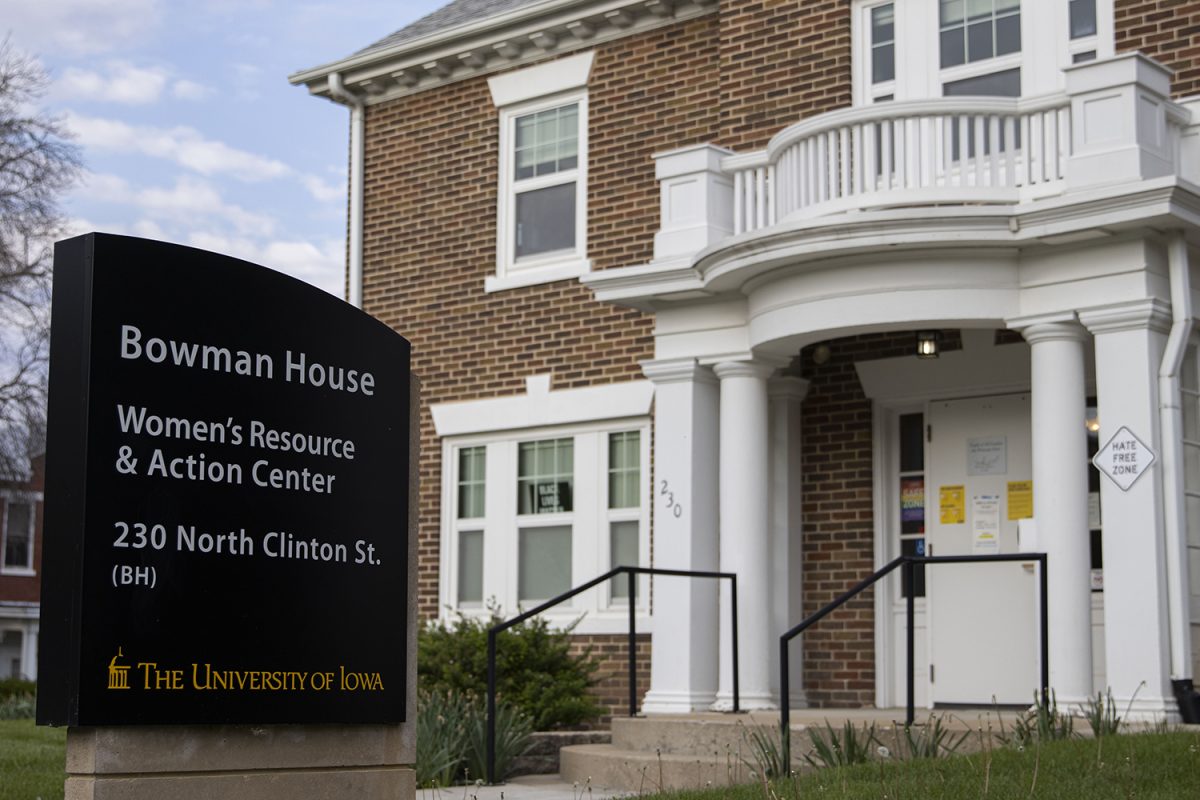In October 2023, the University of Iowa Interfraternity Council was criticized for not taking enough action to prevent acts of sexual violence on campus. The council responded to this criticism with an Instagram post outlining its plan for preventing sexual misconduct.
This plan included Violence Prevention Education workshops, administered through the Women’s Resource and Action Center, the soon-to-be dissolved Rape Victim Advocacy Program, and UI Fraternity and Sorority Life.
Chad Warrick, director of UI Fraternity and Sorority Life, wrote in an email to The Daily Iowan that these workshops are required for fraternity members, although different councils may have different percentage requirements for their chapters.
The workshops are structured in a tiered format, where first-year students must complete tier one, second-year students must complete tier two, and third and fourth-year students must complete tiers three and four. The tiers are as follows:
- Tier 1 – Enthusiastic Consent
- Tier 2 – Bystander Intervention for Preventing Sexual Violence
- Tiers 3 and 4 – Dismantling Rape Culture
- Tiers 3 and 4 – Healthy Relationships
While data is not yet available for the 2023-24 school year, Warrick said 2,165 members of the fraternity and sorority life community at the UI attended their assigned Violence Prevention Education Workshop during the 2022-23 school year. According to the UI’s website, there are over 3,200 students involved in fraternity and sorority life on campus.
Other colleges in the nation have also implemented similar programs. The University of Utah implemented classes and training for members of Greek Life in 2022 following controversies around sexual assaults at fraternity parties.
These workshops are similar in function to the classes that the UI is offering, as Utah also partners with local organizations to combat issues of sexual misconduct. Utah also offers classes on bystander intervention and health relationships.
Some UI students have expressed mixed feelings about the topic of safety in Greek Life on campus. Jackie Wanamaker, a UI second-year student, said fraternities have a culture of sweeping sexual violence under the rug.
“Although I’m happy they’ve implemented classes to talk about issues of sexual assault, it doesn’t give me the confidence that the frats are a safe place,” Wanamaker said.
She said the UI’s recent decision to dissolve the Rape Victim Advocacy Program further solidified these feelings, and this decision felt to her like a step backward for the university’s culture surrounding sexual assault.
Ultimately, when it comes to the sexual violence prevention classes, Wanamaker isn’t confident that enough has been done to make fraternities a safer place.
“For me, it’s hard to acknowledge this as anything but an attempt to clear the air. I personally don’t feel safer at the frats and I’d argue that more needs to be done,” said Wanamaker.
Gretchen Sweeney, a UI first-year student, said there is a stereotype of fraternities being places of sexual assault, and this image has been sustained through news coverage of such assaults taking place.
“As a woman, the minute you walk into a frat this thought crosses your mind,” Sweeney said.
RELATED: UI Interfraternity Council sexual violence prevention plan sparks conversation among UI activists
However, Sweeney said her experience with fraternities hasn’t been negative.
“During the few occasions I’ve been in an Iowa City frat, I have felt generally safe,” Sweeney said.
While she is aware and cautious of the safety concerns of fraternities, Sweeney said she is more concerned with cleanliness.
“After getting to the bathroom, I was more worried about the cleanliness of frats than my safety,” Sweeney said.



